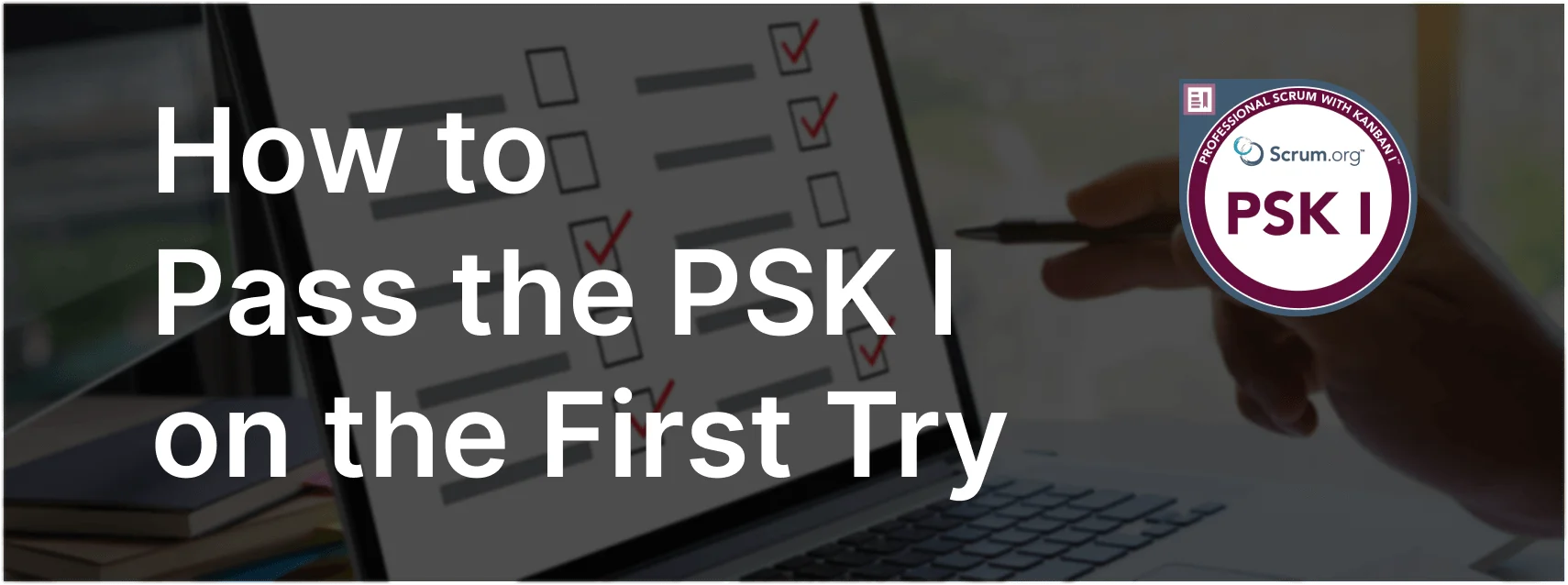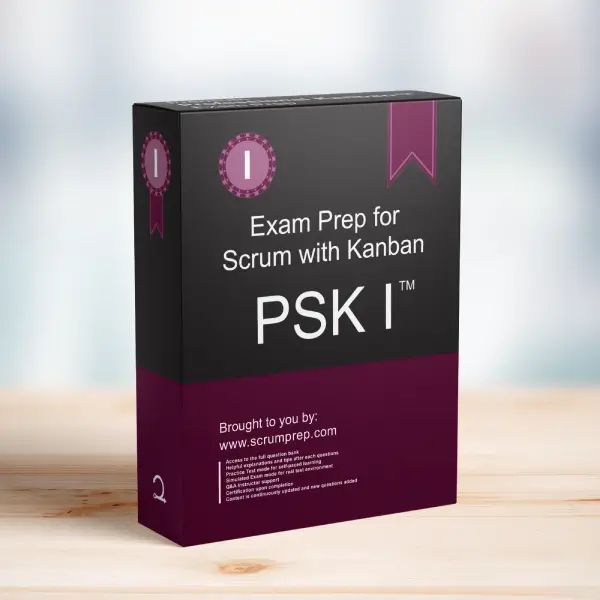Scrum with Kanban: Understanding the Integration
Scrum with Kanban integrates Kanban practices into the existing Scrum framework without altering the core components of Scrum, such as events, roles, artifacts, and rules.
Exam Question
True or False: Scrum Events, Roles, Artifacts, and Rules are changed when using Scrum with Kanban. For example, the Scrum Team might choose to no longer conduct a Sprint Retrospective when using Kanban with Scrum.
A. True
B. False
Correct Answer
B. False
Explanation
Correct Answer
B. False:
When integrating Kanban with Scrum, the fundamental components of Scrum—such as events, roles, artifacts, and rules—are not changed. The Scrum framework remains intact, and all Scrum events, including the Sprint Retrospective, must still be conducted. Kanban practices are added to enhance the team’s workflow, but they do not replace or eliminate any part of the Scrum framework. For example, the Sprint Retrospective remains an essential event for the Scrum Team to reflect on their process and make improvements, even when using Kanban.
Key Points on Scrum with Kanban
- Events: All Scrum events, including Sprint Planning, Daily Scrum, Sprint Review, and Sprint Retrospective, must continue to be conducted as defined by the Scrum framework.
- Roles: The roles of the Scrum Team, including the Product Owner, Scrum Master, and Developers, remain unchanged. They continue to fulfill their responsibilities within the Scrum framework.
- Artifacts: Scrum artifacts, such as the Product Backlog, Sprint Backlog, and Increment, are still used to manage work and deliver value.
- Rules: The rules of Scrum, as defined in the Scrum Guide, continue to apply. Kanban practices are integrated to help manage workflow but do not alter the core structure of Scrum.
The Role of Kanban in Scrum
- Enhancing Workflow: Kanban practices, such as limiting Work In Progress (WIP) and visualizing workflow, are used to enhance the flow of work within the existing Scrum framework. These practices help Scrum Teams manage their work more effectively without changing the fundamental structure of Scrum.
- Complementary Practices: Kanban is added as a complementary practice to Scrum, providing additional tools and techniques to improve efficiency and flow. However, it does not replace any part of the Scrum process.
Relevance to the PSK I Exam
Understanding that Scrum’s core components are not altered when integrating Kanban is crucial for the PSK I exam. It demonstrates knowledge of how to effectively combine Scrum and Kanban without compromising the integrity of the Scrum framework.
Key Takeaways
- The fundamental components of Scrum, including events, roles, artifacts, and rules, are not changed when using Scrum with Kanban.
- Kanban practices are integrated to enhance workflow but do not replace or eliminate any part of the Scrum framework.
- The Scrum framework remains intact, ensuring that all essential events, roles, and artifacts are still used as defined in the Scrum Guide.
Conclusion
Scrum events, roles, artifacts, and rules are not changed when using Scrum with Kanban. The integration of Kanban practices is designed to enhance the existing Scrum framework, not replace it. For more information on preparing for the PSK I exam, visit our Professional Kanban PSK I™ Exam Prep.



